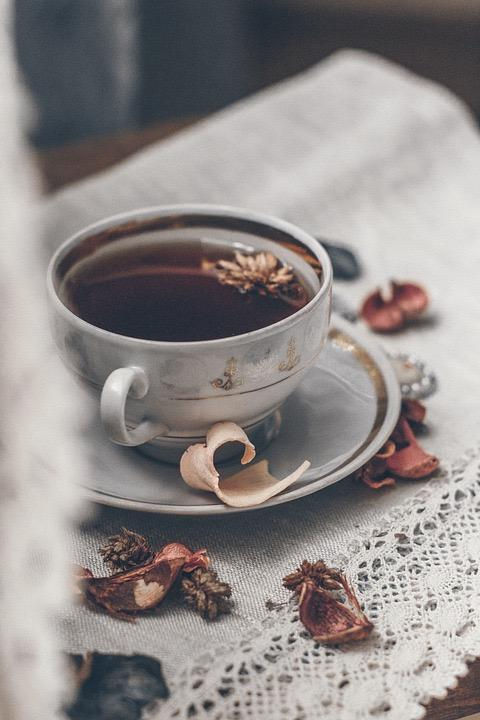Drinking Tea in Pregnancy ..
- simplybirthbyanna
- Apr 27, 2022
- 4 min read

A five minute ritual of drinking a warm beverage a few times a day can do wonders for your soul in addition to keeping you well hydrated. It can be tricky though to know what is safe to drink in pregnancy, especially when it comes to herbal teas and knowing how much caffeine is in per cup and if the type of tea you chose is safe in pregnancy?
Lets talk firstly about Caffeine ..
Caffeine is found naturally in some foods and drinks and added to others products. High levels of caffeine have been linked to low birth weight babies, miscarriage and even stillbirth with latest research indicating the risk from caffeine increasing with the more caffeine consumed. The current national recommendation for pregnancy is to aim for no more than 200mg of caffeine a day which is around 2 cups of instant coffee. Caffeine is found in more than coffee though being found in tea, chocolate and energy drinks. The NHS have a useful guide in giving you a rough idea of how much caffeine is found in these key foods and drinks enabling you to keep your caffeine intake under the daily 200mg suggested limit: Foods to avoid in pregnancy - NHS (www.nhs.uk)
When it comes to herbal teas, the evidence and effectiveness of them can be a minefield to explore. The challenge with all herbal teas is that although the herbs and plants used to create them have been around for centuries, there isn't a lot of scientific research to support their benefits. Therefore many of their benefits are reported and not researched ones. Below we explore some of the reported benefits to some popular herbal teas consumed in pregnancy that are thought to be safe in moderation.
Red Raspberry Tea
This tea has been discussed in antenatal classes for as long as I can remember with women having a keen interest to know if this tea really is effective at shortening a labour? The answer always has to be at present, that there is no evidence to back up the claim that the tea will shorten your labour. However, the thinking behind red raspberry leaf tea is that it is believed to tone and strengthen the uterus and thus in labour, give more 'effective' contractions that may shorten the duration of it. It is a tea that is caffeine free (unless mixed with other teas that are caffeine rich). It is a misconception that raspberry leaf tea can start labour, more act as a tonic for the uterus, and is also argued that it's benefits carry on post birth to help restore uterine tone and muscle and curb excessive bleeding. It is generally advised that if you drink the tea, to do so after 32 weeks of your pregnancy and to gradually increase to 2/3 cups a day, with advice to stop consuming the tea if developing any strong braxton hicks contractions under 37 weeks of pregnancy.
Chamomile
Is considered to be a sleepy tea, but is widely promoted to promote calmness as well as aiding sleep and is naturally caffeine free. It's benefits are also thought to help ease tension, achiness and reduce gas pain as well as relieving mood swings and cramps. In moderation this tea is also considered to be safe in pregnancy.
Ginger Tea
Ginger is known for its anti-inflammatory properties as well as helping to ease nausea and aide digestion. Drinking ginger tea may help relieve nausea and sickness during pregnancy. It is caffeine free and complimented well by honey, lemon or lime.

Peppermint Tea
A popular tea chosen in pregnancy to help ease nausea as well as heartburn. It is a fresher tasting, less aromatic tea that is naturally caffeine free and safe in small amounts.
Black, White and Green Teas
All contain caffeine but in pregnancy regarded as safe in moderation. Green Tea is thought to be much lower in caffeine with an estimated 25grams per cup, however is high in catechins, which is a substance that can prevent the full absorption of folic acid - especially important in pregnancy and so you will see varied information about drinking green tea in pregnancy from advice to limit consumption to that of total avoidance.
Oat Straw Tea
Rich in calcium and magnesium especially, this tea is naturally caffeine free and thought to help relieve anxiety, irritated skin, restlessness and promote wound healing as well as help easing bleeding. Again thought to be safe in moderation in pregnancy.
..The general consensus from various experts in nutrition and pregnancy suggest that drinking herbal teas in pregnancy seems very unlikely to cause harm, but as a precaution you may chose to limit your consumption to no more than 4 cups a day. There can be consideration given also towards a switch from regular tea and coffee to a decaffeinated version.
Remember, if you add milk to any tea, the absorption of folic acid and iron may be reduced. Iron supplements are usually encouraged to be taken in a morning on an empty stomach with water or fresh orange juice and folic acid with water only.
Teas advised to limit or avoid during pregnancy
. Fennel Seed
. Hibiscus
. Yerba Mate
. Nettle
. Liquorice
Useful further resources into Tea in pregnancy and post Birth





Comments